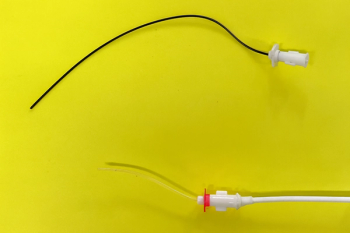
How to outwit refractory incontinence in dogs
You're trying to stop the leaks, but it's not working. Dr. India Lane says to run through this list to find and capture the culprit.
"I remain hopeful ..." (Shutterstock.com)In a
Cause or complicating factor
Possible solutions
Inadequate dosage or frequency of administration of medication
• Check dosage and increase the dosage within the recommended range
• If using estrogen, increase the frequency (up to every two days) as tolerated
• Change the product type (formulation or supplier)
Desensitization of alpha receptors
• Consider a washout period and restart the alpha agonist at once-a-day administration
Inappropriate medication
• Consider changing from estrogen to alpha agonist administration
• Consider adding estrogen to alpha agonist administration
Poor owner compliance
• Consider switching to a long-acting alpha agonist or to estrogens to improve compliance (or vice versa)
Underlying urinary tract infection
• Monitor for a urinary tract infection and treat appropriately
Underlying polyuria
• Evaluate for common, treatable polyuric disorders (e.g. hyperadrenocorticism, diabetes mellitus)
Mixed disorder of micturition
• Check bladder size for urine retention and overflow incontinence
• Consider the addition of or a trial treatment with an anticholinergic agent
Underlying anatomic abnormality or urine pooling
• Recheck external genitalia and conformation
• Investigate anatomy further with contrast radiography and/or cystoscopy
• Consider endoscopic management of an ectopic ureter or a vaginal abnormality
Underlying neurologic lesion
Investigate for a subtle lumbosacral disorder with a neurologic examination and imaging studies
Behavioral component or senility
Consider treatments for behavioral disorders or cognitive dysfunction
Refractory urethral incompetence
Consider bulking agents to enhance medical management; consider an artificial sphincter in severe, refractory cases
Newsletter
From exam room tips to practice management insights, get trusted veterinary news delivered straight to your inbox—subscribe to dvm360.



